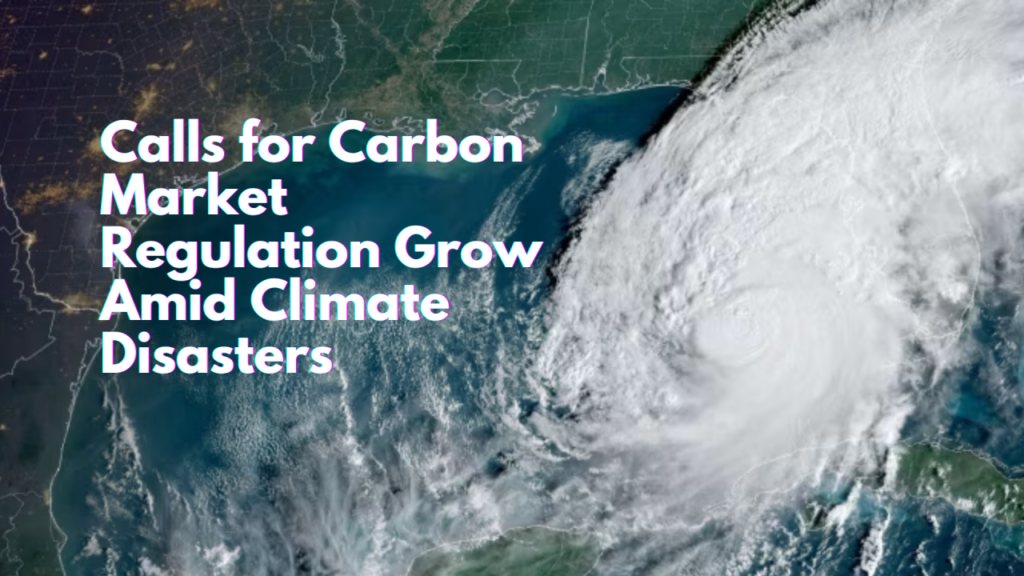Tim Mohin: Calls for Carbon Market Regulation Grow Amid Climate Disasters

For more from Tim Mohin, sign up for his newsletter here
With the 29th “Conference of the Parties” – (COP29, the global climate confab) – just around the corner, countries are planning to leverage the event to revive the beleaguered Voluntary Carbon Market (VCM).
Consensus is building that the VCM must be regulated at the national and international levels to ensure carbon credits actually do what they claim to.
The Voluntary Carbon Market has seen its fair share of controversy. In the last couple of weeks, one of the biggest names in the VCM, Kenneth Newcombe, formerly CEO of C-Quest Capital and board member of carbon verifier Verra, was indicted over claims he manipulated data to attract more than $100 million in carbon offset investments to C-Quest. He could face up to 20 years in prison if found guilty. Verra claims they suspended all 27 of the affiliated projects and are working with the new executive team at C-Quest to cancel all of the credits.
As the punishments for malfeasance in the Voluntary Carbon Market get more serious, the call for more regulation is growing. Andrew Steer, CEO of the Bezos Earth Fund, an environmental charity, said, “It’s now time to get truly professional and regulated in the best sense.”
Thankfully, there is work being done to do just that. Last month, the Commodity Futures Trading Commission (CFTC) (one of the groups involved in prosecuting C-Quest Capital) released new guidelines for trading derivative contracts in the US to reduce price manipulation, following a May release from the Biden administration on principles for a high-integrity VCM. The guidelines and principles are part of a broader plan from Treasury Secretary Janet Yellen and the Biden administration to bring more integrity to the Voluntary Carbon Market, which they plan to pitch internationally at COP29 next month.
The plan involves using the carbon offset market to mobilize private financing for developing nations to help them mitigate and adapt to climate change. Curtis Ravenel of the Glasgow Financial Alliance for Net Zero (GFANZ) said, “Getting money into emerging economies is very difficult. But if done the right way, a high-integrity carbon credit could help catalyze further deployment.”
Related Article: Tim Mohin: California Climate Disclosure Law Advances, EU Delays Deforestation Rule








